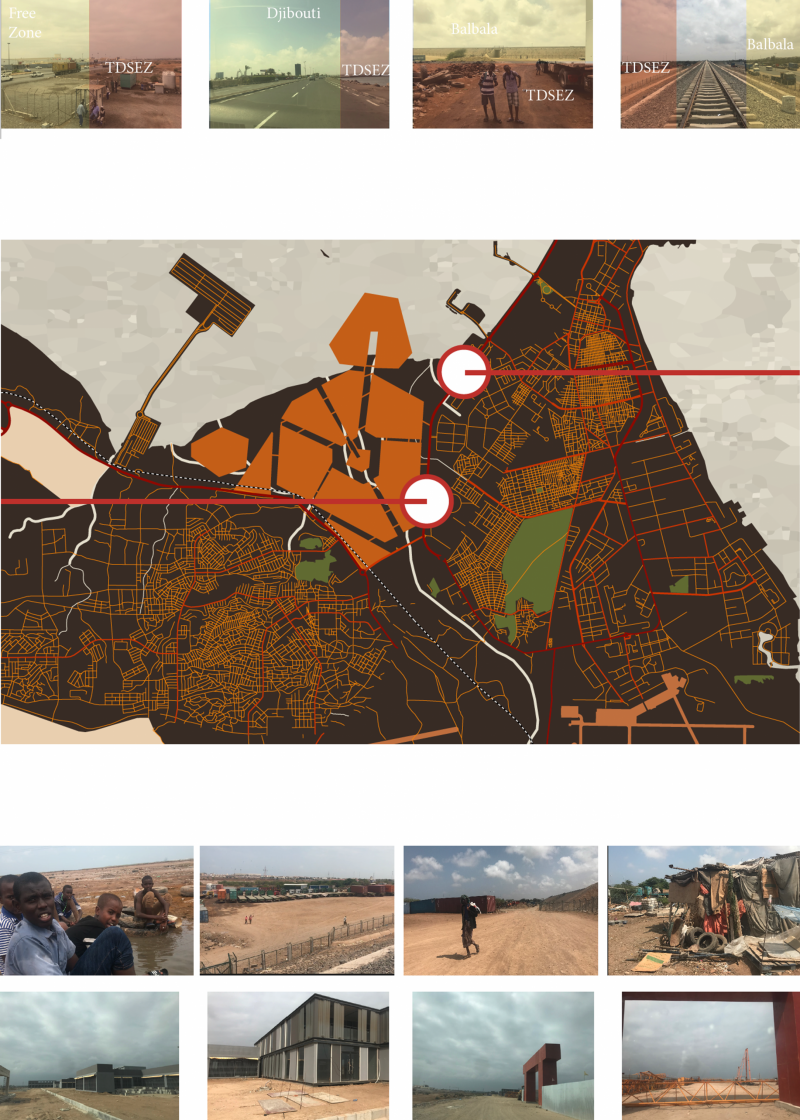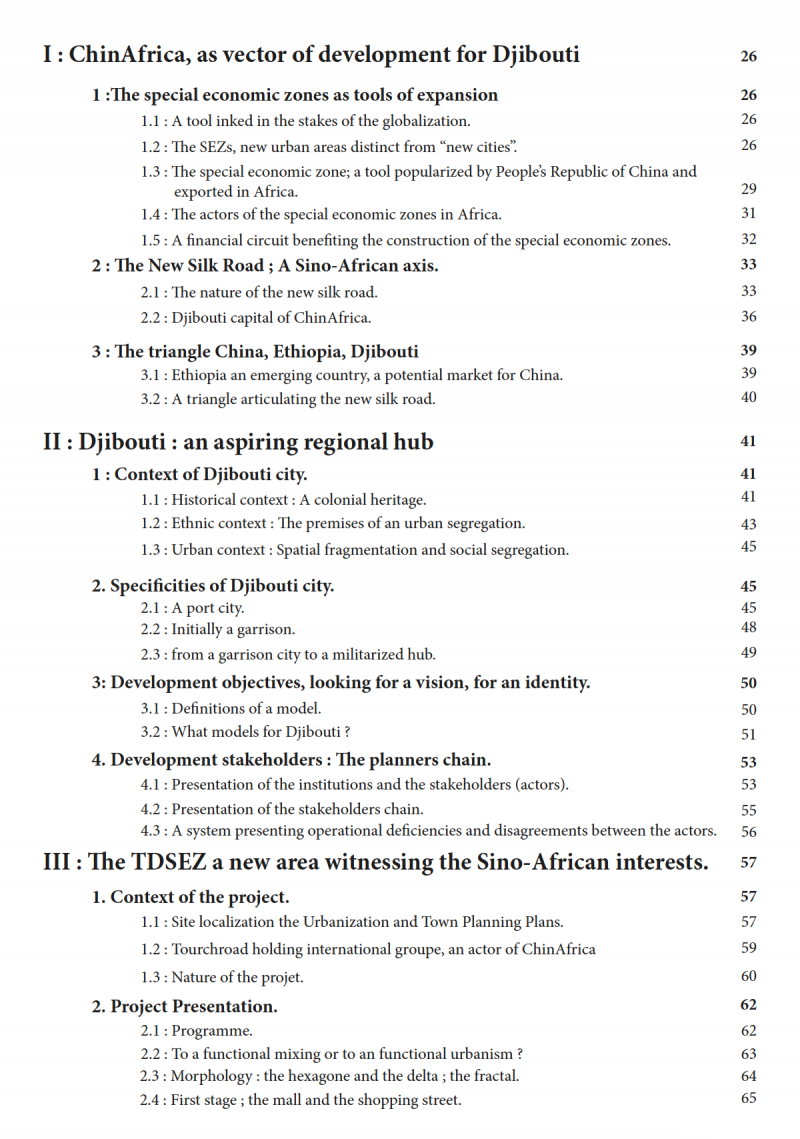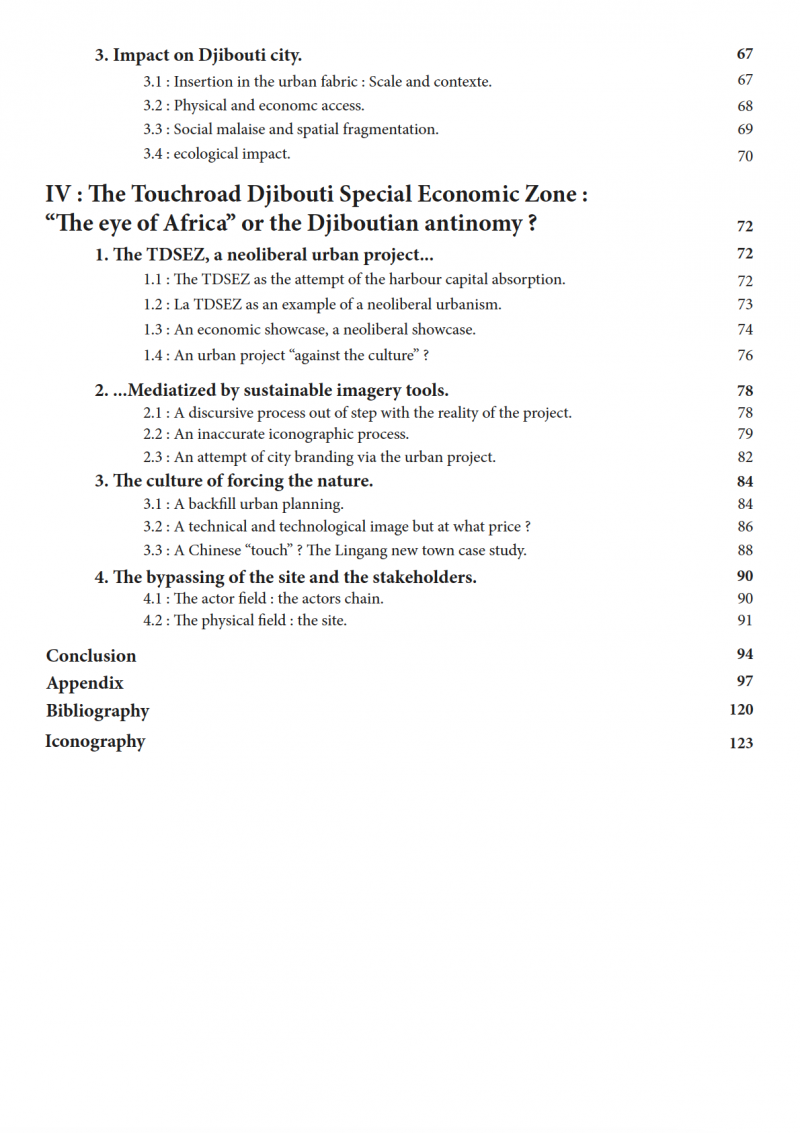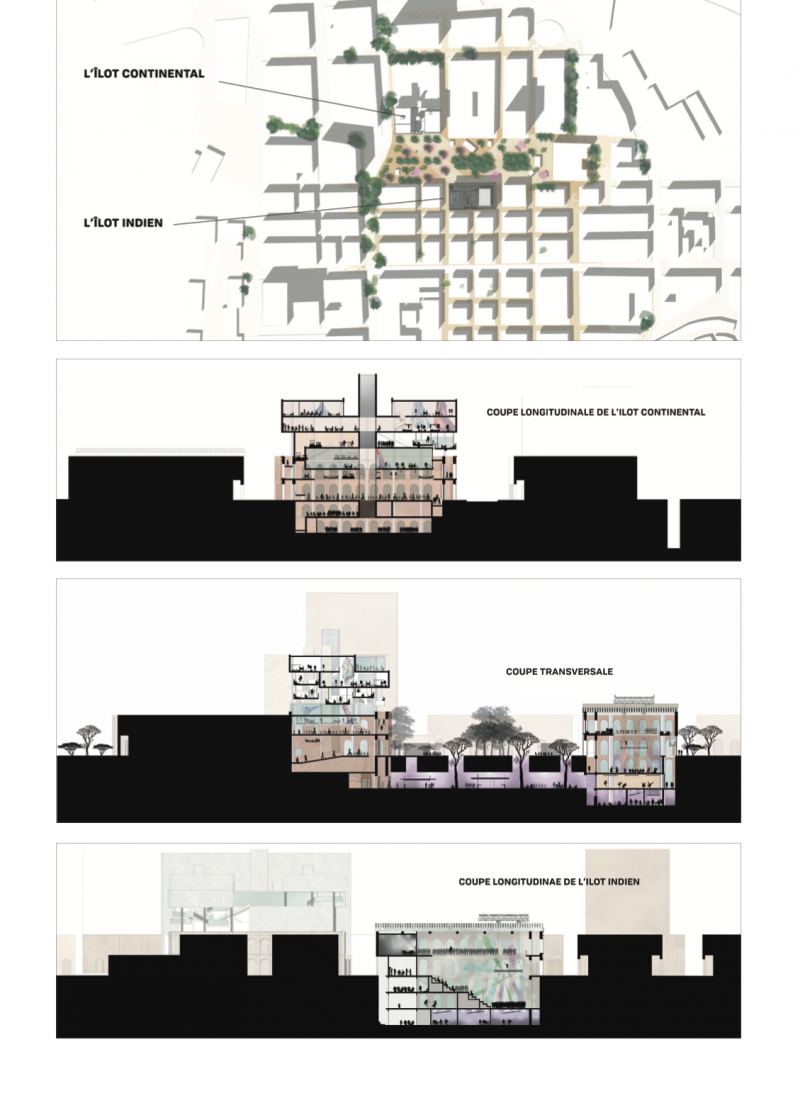Impact of Chinese Investments on the new Special Economic Zones in ChinAfrica
During these last fifteen years the multilateral rapprochement between People’s Republic of China and African states have accelerated. However, since the first Forum on the cooperation China Africa ( FOCAC) of 2006, we had attended to an intensification of this political, economic and commercial axis of exchange. By operating a res-tructuration of the established world order, China gave an important place to its African partners in the New Silk Routes. Thereupon, we are assisting to a remarkable transformation of certain African aglomerations through the construction of new infrastructures and above all new special economic zones. Since 2015, Djibouti constitutes a major gateway for China on East Africa. It is in this militarized harbour hub in mutation that the Sino-Djiboutian partnership HALT / Touchroad decided to build the Djibouti Touchroad Special Economic Zone ( TDSEZ). It is thus in this configuration that will emerge the first special economic zone driven by a Chinese company on the African continent. This Master thesis proposes a research work to discuss the impact of the Chinese investments on the Djiboutian territory throughout the study case of the TDSEZ. It is question of highlighting three studies, scientific research relying on three scales, an graphical analysis of the TDSEZ as well as a field study based on the positioning and the statments of the stakeholders facing the reality of the site. The purpose will be to demonstrate how the system of ChinAfrica at a large-scale influences and redraws the Djiboutian territory. Besides, it will be question of discussing several issues; the model of development either urban and economic, the impacts of our study case on the urban fabric, social pattern and on the environment. Furthermore, by confronting a set of theoretical and scientific works with the images communicated by the Chinese designer and with the word of the Djiboutian actors, the purpose aimed will be to comprehend how the discursive and iconographic process as well as the imaginary of th sustainable city conveyed by the project will be transplanted and grafted in the reality of the Djiboutian urban area. The target will be to make back and forth between the theory and the field of the actors to be able to decipher the wings of an urban project in the system of ChinAfrica. By adressing all those aspects, and by confronting the various scales and the analysing tools, this Master thesis will aim at demonstrating how the Chinese investments influence the African aglomerations. Also it will attempt to demonstrate which tools are used by the multilateral actors, either Chinese and Djiboutian to exist on the interna-tional stage.











